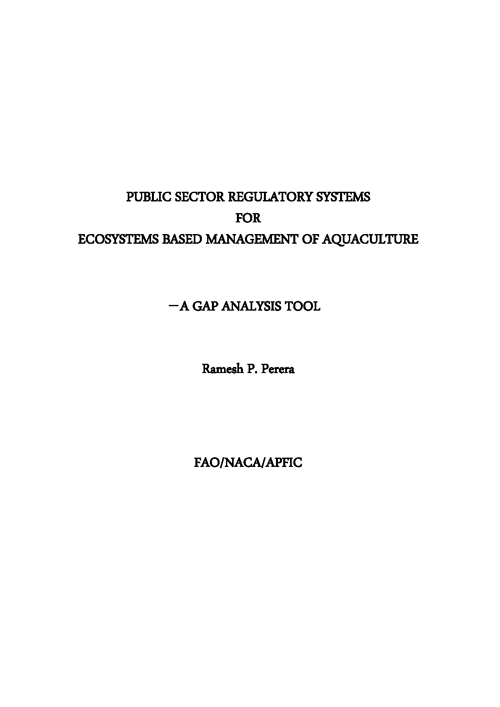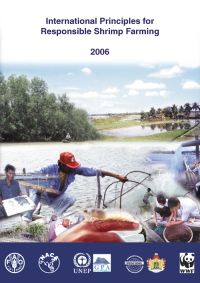Public Sector Regulatory Systems for Ecosystems Based Management of Aquaculture - a GAP Analysis Tool
9 April 2013 | Ramesh Perera | 2540 Downloads | .pdf | 183.01 KB | Australia, Better management practices, Governance and Policy, Myanmar, Environment and Sustainability, Thailand, Vietnam
This document presents a tool in the form of an audit table that can be used to broadly screen and identify gaps in the management systems of government agencies responsible for regulating aquaculture. These gaps, once identified, can be a first step toward building regulatory frameworks that can better deliver on jurisdictional ecologically sustainable development (ESD) and ecosystems approach to aquaculture (EAA) objectives. The end product of an assessment is a report for consideration by decision makers that lists the identified systems deficiencies and recommends aspects of aquaculture regulatory systems that should be developed, improved or subject to closer investigation. The audit tool is intended for self-assessment by interested government jurisdictions and should ideally be conducted by a small team comprising individuals with relevant expertise taken from within government agencies, external consultants or a combination thereof.
Following a recommendation by the Asia-Pacific Fishery Commission (APFIC) regional consultative workshop on Strengthening Assessments of Fisheries and Aquaculture in the Asia-Pacific Region for Policy Development and Management (Yangon, Myanmar 2011), the Food and Agriculture Organization the United Nations (FAO), the Network of Aquaculture Centres in Asia-Pacific (NACA) and the Asia-Pacific Fishery Commission (APFIC) organised the Regional Study/Workshop on Adoption of Aquaculture Assessment Tools for Sustainability in Asia-Pacific, held in Pattaya, Thailand, in 2012. This was followed by the FAO/NACA/APFIC Regional Consultation on the Sustainable Intensification of Aquaculture Production in the Asia Pacific, (Bangkok, Thailand 2012). Discussions leading up to, during and following these meetings pointed to a need for a gap analysis tool to identify deficiencies in public sector (i.e. government) systems aimed at meeting the objective of ecologically sustainable development of aquaculture (ESD) or as more recently articulated, an ecosystems approach to aquaculture (EAA).
The tool was developed through funding by the Australian Government Department of Agriculture, Fisheries and Forestry, under the guidance of NACA and with the kind cooperation of the Government of Vietnam, which undertook a trial of the tool in two key aquaculture regions in Vietnam.
Creative Commons Attribution.

